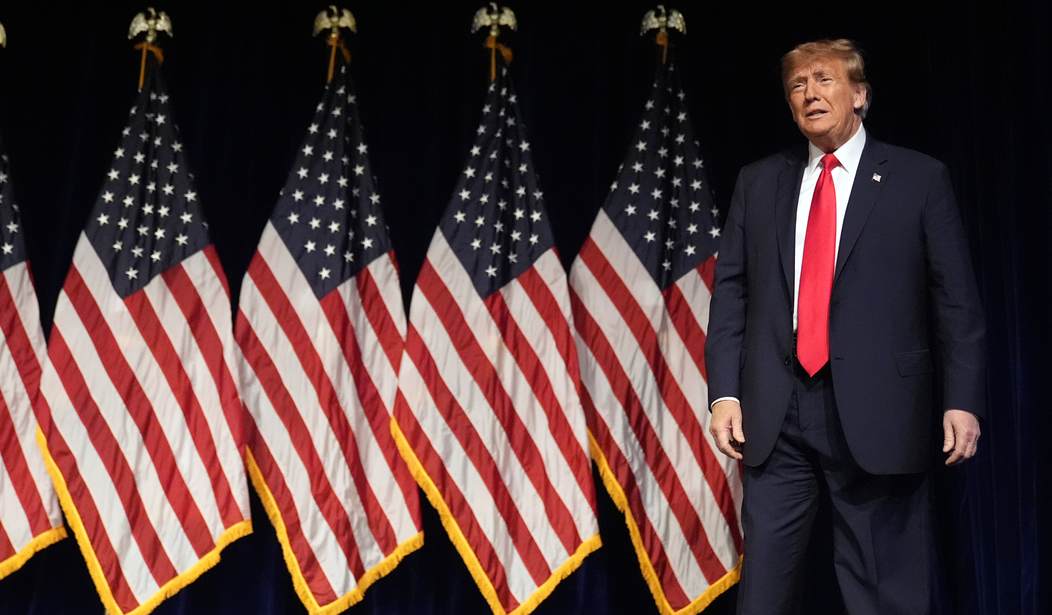As the numerous legal battles unfold against former President Trump, I can't help but feel a sense of déjà vu. The accusations, allegations, and the court cases make it seem like the Presidential election is coming down to Supreme Court decisions. While these cases are attacks on former President Trump, they are also attacks on Free Speech and our marketplace of ideas.
Last week, the United States Supreme Court heard oral arguments on a ridiculous ruling from Colorado’s top court that deemed Trump ineligible for a second term based on an 1868 post-Civil War provision of the U.S. Constitution that disqualifies insurrectionists. The argument? Trump's alleged role in inciting the riot events on January 6th, 2021. Yet, as Justice Kavanaugh astutely pointed out during the proceedings, Trump has never been convicted of insurrection or even charged.
The left's fervent desire to paint Trump as an insurrectionist seems to blur the lines between reality and fiction, crafting a narrative to suit global political agendas.
Rather than engaging in robust debate and letting the American people decide at the ballot box, the left has resorted to lawfare, using legal challenges to silence dissent, manipulate candidate selection, and pre-determine outcomes. The ramifications extend far beyond Trump himself—they strike at the heart of Free Speech and principles of freedom.
As the plaintiff in McCutcheon v. FEC, a 5-4 winning 2014 case aimed at expanding dialogue in the political process, I understand the importance of allowing all voices to be heard. Our country thrives when a diversity of perspectives can freely participate in the political discourse.
By attempting to disqualify Trump from running, his opponents are stifling the voices of his supporters and undermining the very foundation of our republic.
Further, the selective application and omission of legal standards in cases involving political figures raises serious concerns about the impartiality and integrity of the justice system. If politicians can be disqualified from running for office based on unproven allegations or subjective interpretations of their actions, it sets a dangerous precedent that undermines the credibility of elections and erodes public trust in the government processes. In a functioning Constitutional Republic, the power to remove elected officials should ultimately lie with the voters.
Recommended
When court decisions are perceived as being driven by partisan agendas rather than legal principles (like the Colorado case and another in Maine), it erodes public confidence in the judiciary and undermines the rule of law. In the case of Trump's eligibility, it is essential that the Supreme Court's decision is based on careful consideration of the relevant legal principles and precedents, rather than on political considerations or public pressure.
The Supreme Court's decision to fast-track this case speaks volumes about its significance in 2024 and beyond. It's not just about Trump's eligibility, it's about setting a precedent that will shape the future of our electoral process.
Based on the questions posed by justices, it appears likely that a decision will be unanimous in favor of Trump's right to be on the ballot.
Beyond the immediate implications for Trump, there's a broader concern raised by Chief Justice Roberts during the arguments. Allowing states to disqualify candidates based on subjective interpretations of eligibility criteria sets a dangerous precedent. If we allow it in this instance, what's to stop more conservative states from denying progressive candidates the opportunity to run? The erosion of Free Speech and the politicization of our legal system threatens to undermine the very fabric of our free nation.
The legal battles surrounding Trump's candidacy have far-reaching implications for the future. The remedy of what the judge’s order may well determine whether Trump has is even able to stay in the race or have any real chance to win. If other states start to do the same thing to Trump or other candidates, chaos will ensue.
In the end, the Supreme Court should again strongly uphold US First Amendment principles and reaffirm the importance of Free Speech. When we silence dissent and manipulate the rules to suit political agendas, we undermine the stability of a free and prosperous society.
Shaun McCutcheon is a Free Speech advocate, an Alabama-based electrical engineer, the founder of Multipolar, and was the successful plaintiff in the 2014 Supreme Court case McCutcheon v. FEC.

























Join the conversation as a VIP Member